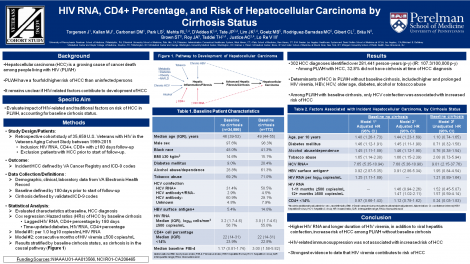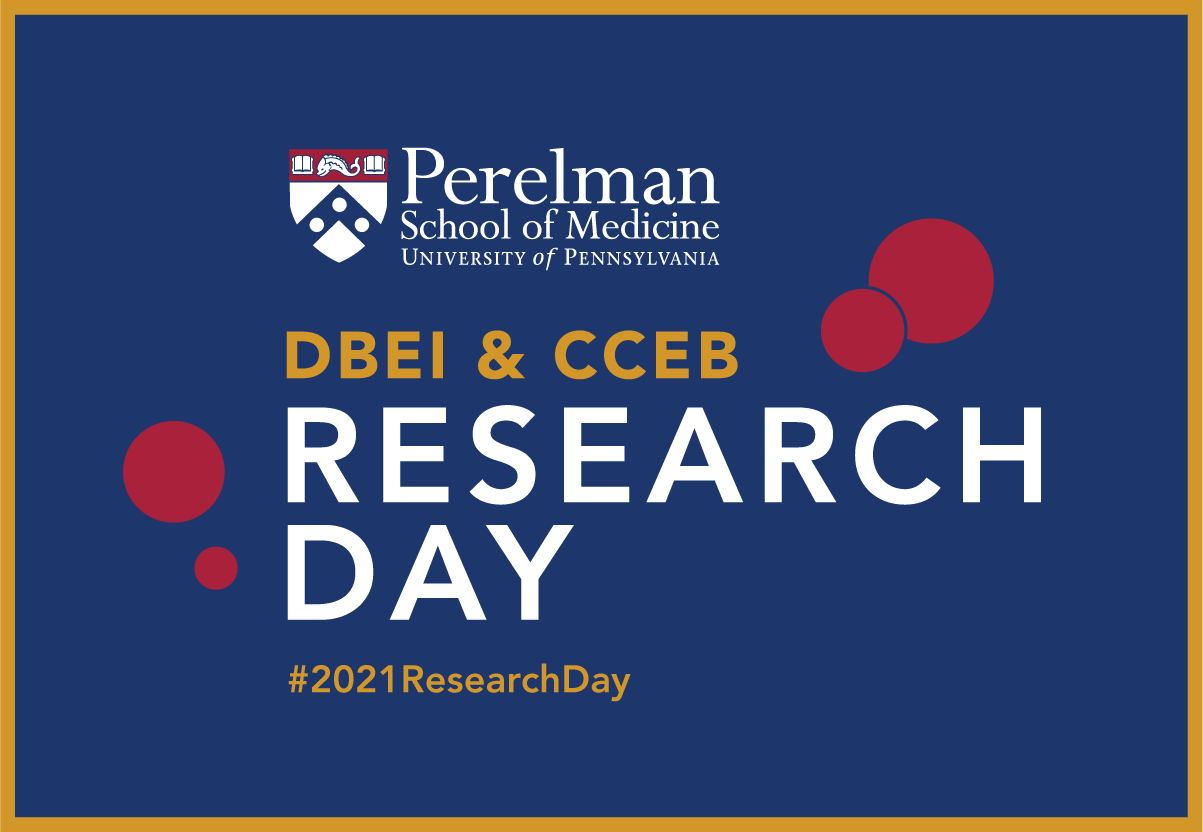Jessie Torgersen
HIV RNA, CD41 Percentage, and Risk of Hepatocellular Carcinoma by Cirrhosis Status
Abstract
Despite increasing incidence of hepatocellular carcinoma (HCC) among people living with HIV (PLWH), it remains unclear if HIV-related factors contribute to HCC development. We examined if higher or prolonged HIV viremia and lower CD4+ cell percentage were associated with HCC.
We conducted a cohort study of PLWH who had HIV RNA, CD4+, and CD8+ cell counts and percentages assessed in the Veterans Aging Cohort Study (1999–2015). HCC was ascertained using Veterans Health Administration cancer registries and electronic records. Cox regression was used to determine hazard ratios (HR, 95% confidence interval [CI]) of HCC associated with higher current HIV RNA, longer duration of detectable HIV viremia (≥500 copies/mL), and current CD4+ cells <14%, adjusting for traditional HCC risk factors. Analyses were stratified by cirrhosis diagnosis prior to start of follow-up.
Among 35,659 PLWH, 302 (0.8%) developed HCC over 281,441 person-years (incidence rate: 107.3 per 100 000 person-years). Among patients without baseline cirrhosis, higher HIV RNA (HR: 1.25, 95% CI: 1.12-1.40, per 1.0 log10 copies/mL) and ≥12 months of detectable HIV (HR: 1.47, 95% CI: 1.02-2.11) were independently associated with higher risk of HCC. CD4+ cells <14% was not associated with HCC in any model. Hepatitis C coinfection was a statistically significant predictor of HCC regardless of baseline cirrhosis status.
Among PLWH without baseline cirrhosis, higher HIV RNA and longer duration of HIV viremia increased risk of HCC, independent of traditional HCC risk factors. This is the strongest evidence to date that HIV viremia contributes to HCC risk in this group.
Keywords
Hepatocellular carcinoma, HIV, advanced hepatic fibrosis, cirrhosisCommenting is now closed.
About Us
To understand health and disease today, we need new thinking and novel science —the kind we create when multiple disciplines work together from the ground up. That is why this department has put forward a bold vision in population-health science: a single academic home for biostatistics, epidemiology and informatics.
© 2023 Trustees of the University of Pennsylvania. All rights reserved.. | Disclaimer



